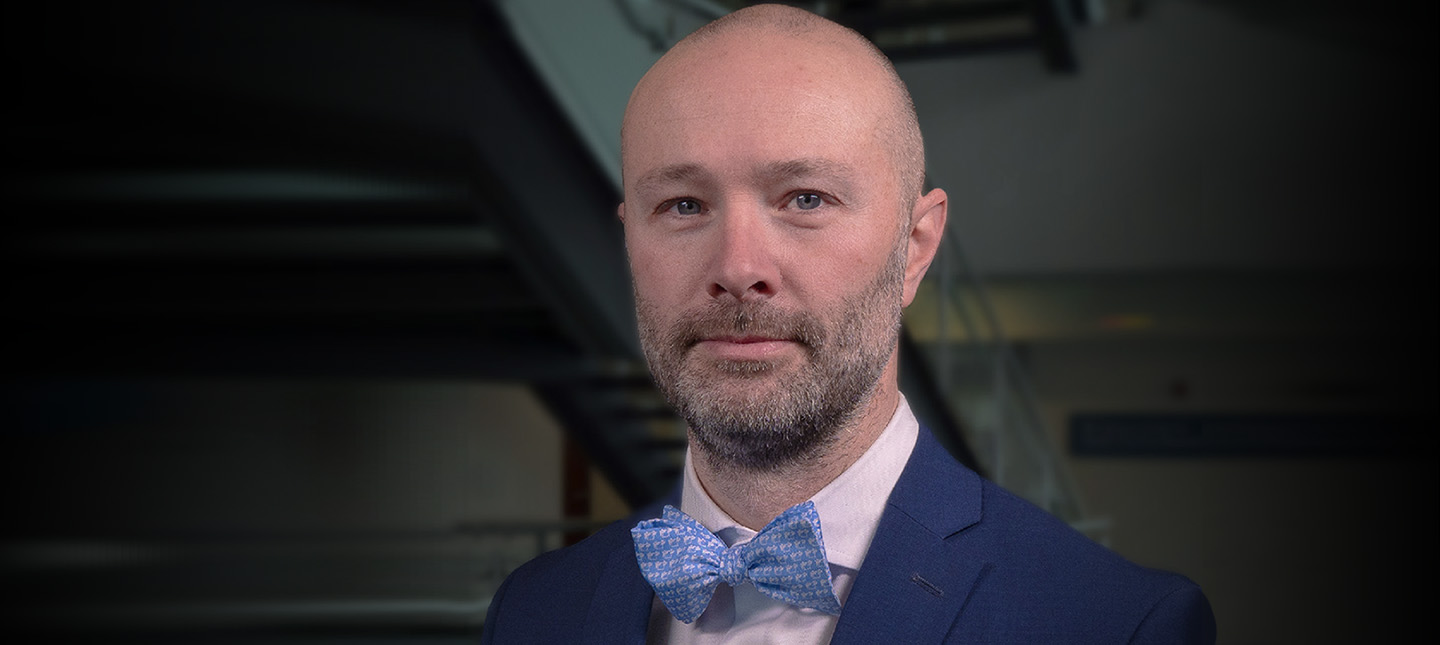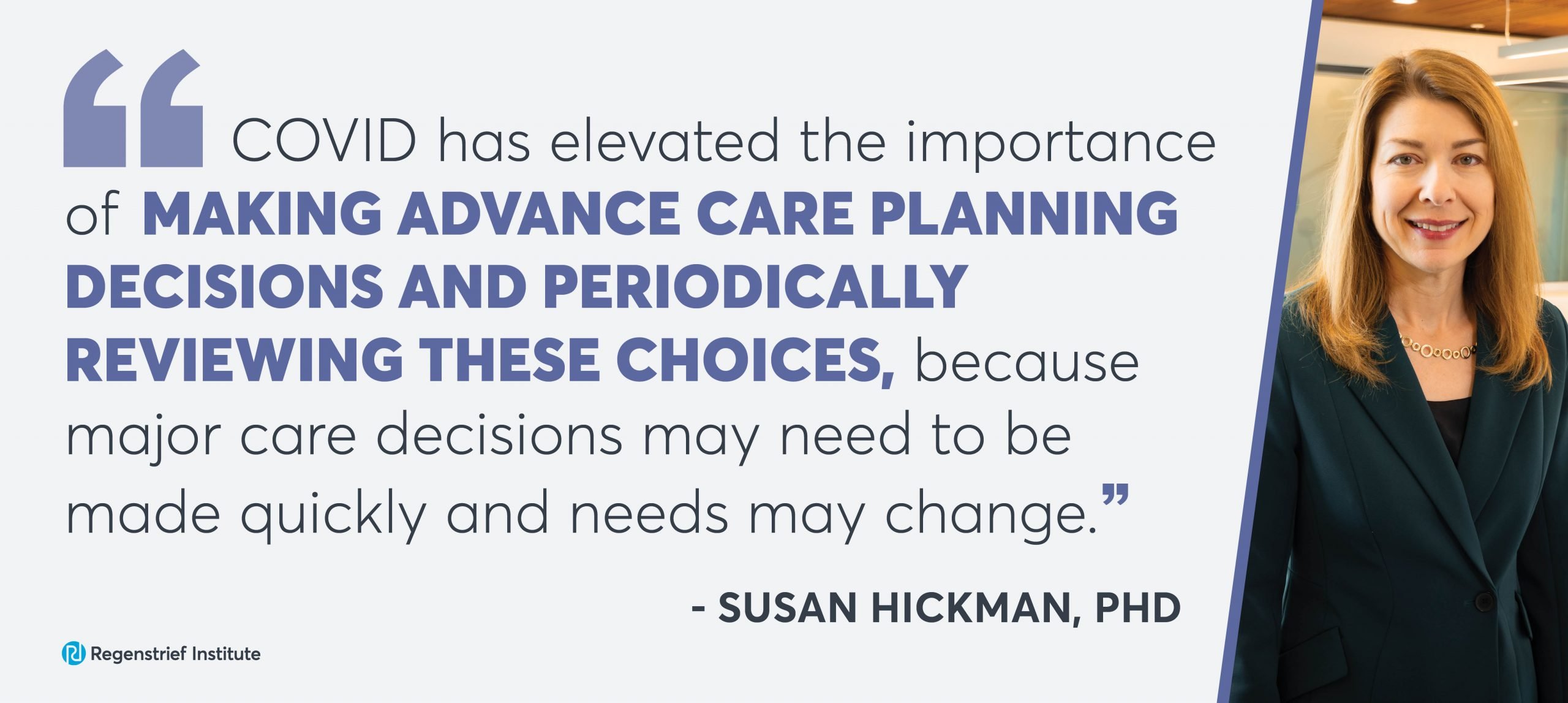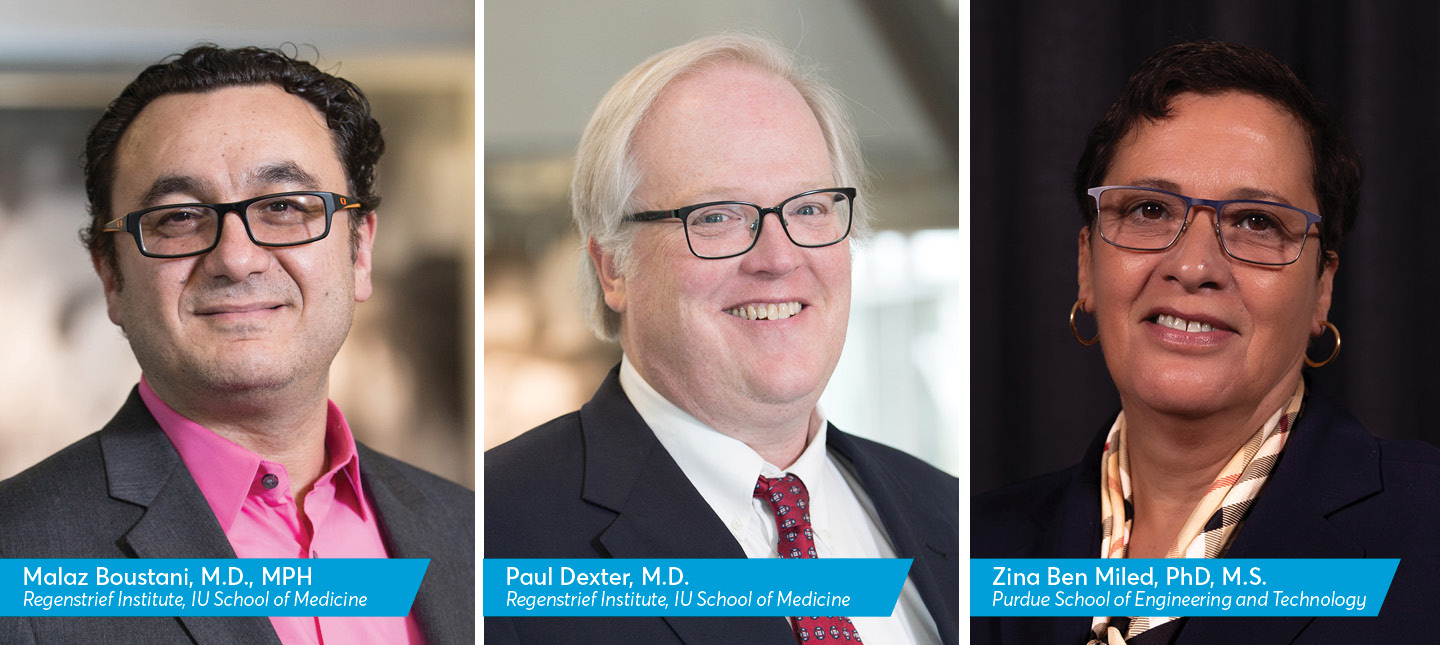IU and Regenstrief studies find mismatch between recorded and current treatment preferences
The high incidence of COVID-19 and resulting sudden changes in the health of many long-stay nursing home residents across the country have amplified the importance of advance care planning and the need for periodic review of the process, especially as widespread vaccination changes the calculus of the disease.
Two new studies from Indiana University and Regenstrief Institute focus on POLST, a medical order form widely used in nursing homes that documents what life-sustaining treatments a person prefers to receive or not receive, such as hospitalization or comfort-focused care. The studies, published online ahead of print in the Journal of the American Geriatrics Society (JAGS), found discrepancies between medical orders recorded in the POLST form and nursing home residents’ (or surrogate decision-makers, for those unable to make their own decisions) current treatment preferences and explore reasons for the lack of agreement.
“COVID has elevated the importance of making advance care planning decisions and periodically reviewing these choices, because, as we have seen very clearly over the past year, major care decisions may need to be made quickly and needs may change,” said research leader Susan Hickman, PhD, director of Indiana University Center for Aging Research at Regenstrief Institute and a professor at IU School of Nursing and IU School of Medicine. “Our finding that nursing home residents or their surrogate decision-makers often no longer agreed with their POLST form highlights the critical need to work with nursing homes, residents and their families to ensure these documents are reviewed regularly and updated to reflect current situations and preferences.”
The researchers found that less than half of all POLST forms of the 275 study participants matched current treatment preferences for resuscitation, medical interventions, and artificial nutrition. However, the POLST was more than five times as likely to agree with current treatment preferences when these orders reflected preferences for comfort-focused care. In interviews, participants reported the mismatch was due to factors including a lack of key information when they filled out the form and not revisiting POLST when the resident experienced a change in condition.
“One of the more surprising findings of our work was that a notable number of individuals whose current treatment preferences did not match POLST did not desire to update their POLST form,” said Dr. Hickman. “Obviously, nursing homes and clinicians need to work on educating people about the importance of these decisions. We are working to help them with these efforts.”
In addition to Dr. Hickman, authors of “Concordance between POLST Orders and Current Treatment Preferences” are Regenstrief Institute Research Scientists Alexia M. Torke, M.D. and Greg A. Sachs, M.D.; Rebecca L. Sudore, M.D., University of California San Francisco School of Medicine, Qing Tang, M.S., and Giorgos Bakoyannis, PhD, of IU School of Medicine and the IU Richard M. Fairbanks School of Public Health at IUPUI; Nicholette Heim Smith, BSN, and Anne L. Myers, MPH, of IU School of Nursing and Bernard J. Hammes, PhD of Respecting Choices, a division of C-TAC Innovations.
Authors of “Reasons for Discordance and Concordance between POLST Orders and Current Treatment Preferences,” in addition to Dr. Hickman, are Regenstrief Institute Research Scientists Alexia M. Torke, M.D., and Greg Sachs, M.D., both also of IU School of Medicine; Nicholette Heim Smith, BSN and Anne L. Myers, MPH of the IU School of Nursing; Rebecca Sudore, MD of University of California San Francisco School of Medicine; Bernard J. Hammes, PhD of C-TAC Innovations.
Both studies were funded by the National Institute of Nursing Research of the National Institutes of Health under grant number R01NR015255.
About Regenstrief Institute
Founded in 1969 in Indianapolis, the Regenstrief Institute is a local, national and global leader dedicated to a world where better information empowers people to end disease and realize true health. A key research partner to Indiana University, Regenstrief and its research scientists are responsible for a growing number of major healthcare innovations and studies. Examples range from the development of global health information technology standards that enable the use and interoperability of electronic health records to improving patient-physician communications, to creating models of care that inform practice and improve the lives of patients around the globe.
Sam Regenstrief, a nationally successful entrepreneur from Connersville, Indiana, founded the institute with the goal of making healthcare more efficient and accessible for everyone. His vision continues to guide the institute’s research mission.
About IU School of Nursing
Indiana University School of Nursing is one of the largest nursing schools in the nation that offers a full range of programs from undergraduate to doctoral. Over 22,000 IUSON alumni across the globe are empowered to be leaders in clinical practice, research, education, and innovation. The School’s Master’s and DNP programs are both ranked #1 in Indiana according to U.S. News & World Report with the master’s program ranked in the top 50 in the United States.
About IU School of Medicine
IU School of Medicine is the largest medical school in the U.S. and is annually ranked among the top medical schools in the nation by U.S. News & World Report. The school offers high-quality medical education, access to leading medical research and rich campus life in nine Indiana cities, including rural and urban locations consistently recognized for livability.
About Susan Hickman, Ph.D.
In addition to leading the IU Center for Aging Research at Regenstrief Institute, Susan Hickman, PhD, is a professor at Indiana University School of Nursing, a professor and Cornelius and Yvonne Pettinga Chair of Aging Research at IU School of Medicine, and the co-director of the IUPUI Research in Palliative and End-of-Life Communicating and Training (RESPECT) Signature Center.











